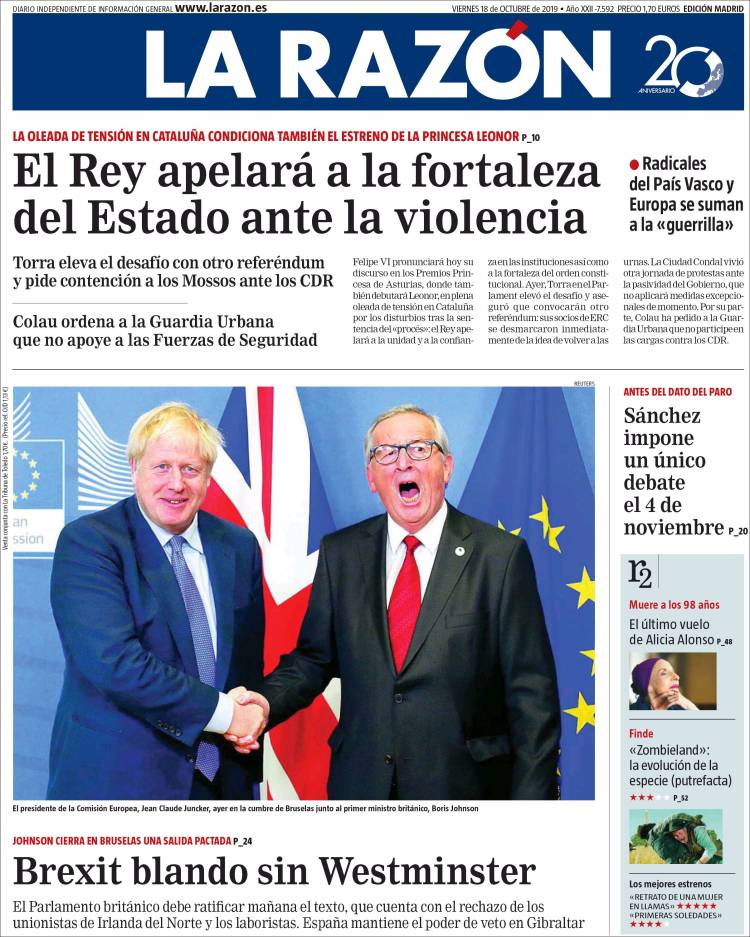The EU and U.K. signed off on a new Brexit deal at the European Council summit in Brussels on Thursday.
The text of the deal, which was agreed by EU27 leaders and British Prime Minister Boris Johnson, must now be ratified by both the U.K. and European parliaments.
European papers on Friday morning are skeptical that the deal would make it over these last hurdles.
France
French papers focused on the fact the deal struck in Brussels could yet fail. Le Figaro declared on its front page that the new agreement was the “last chance for an amicable Brexit.” The paper noted that the agreement found in Brussels between the U.K. and EU “has yet to pass the test of the British parliament,” where the Democratic Unionist Party have said they won’t back it. La Tribune’s front page declared: “Agreement found but not yet endorsed.” Ouest France, meanwhile, called it “the weakened agreement.” Les Echos declared the deal was “hanging by a thread.”
Image may be NSFW.
Clik here to view.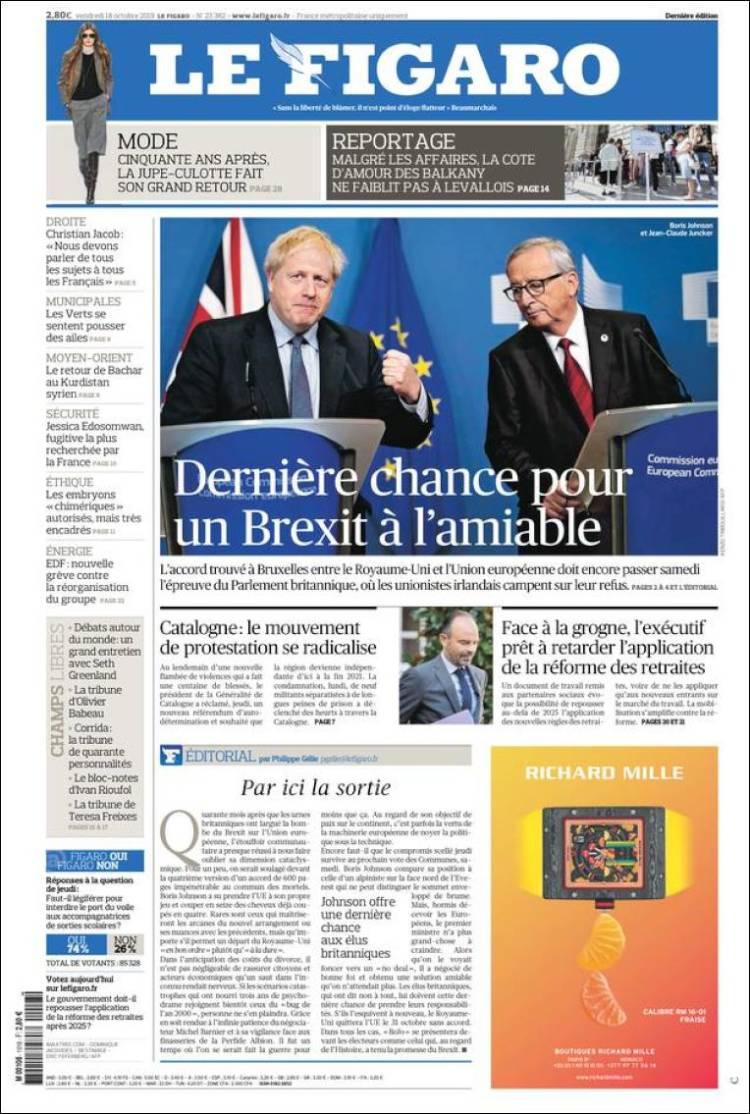
Image may be NSFW.
Clik here to view.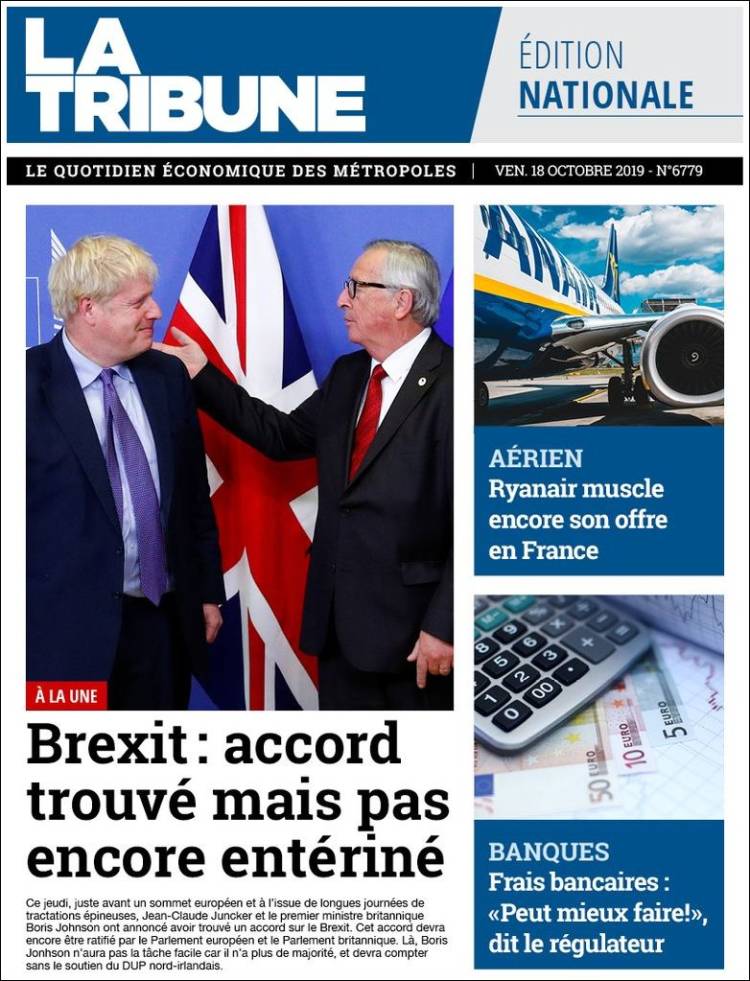
Image may be NSFW.
Clik here to view.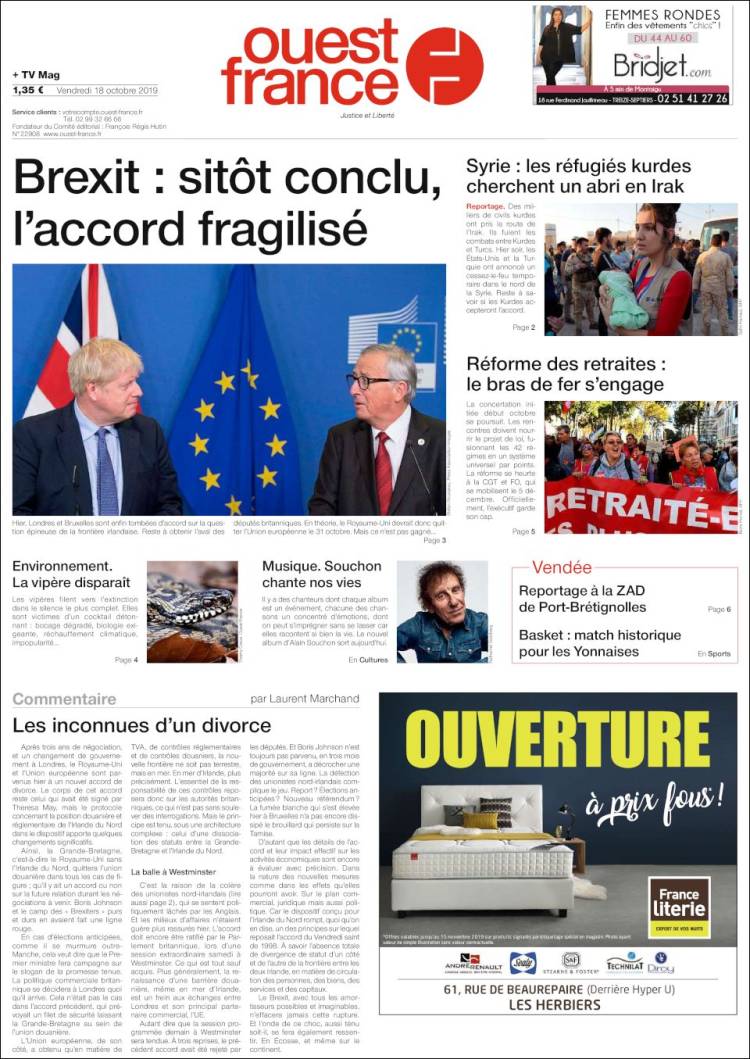
Germany
“A deal! A deal?” declared a skeptical Der Tagesspiegel headline. Also in the cynical camp: Die Welt, which wrote: “There’s a new Brexit deal — but for how long?” The paper noted that it was “questionable” whether the U.K. parliament would greenlight the deal on Saturday. “Where there is a will, there is a deal,” wrote Süddeutsche Zeitung, quoting a tweet by European Commission President Jean-Claude Juncker, but noted the agreement was “threatening to fail” in the British parliament.
Image may be NSFW.
Clik here to view.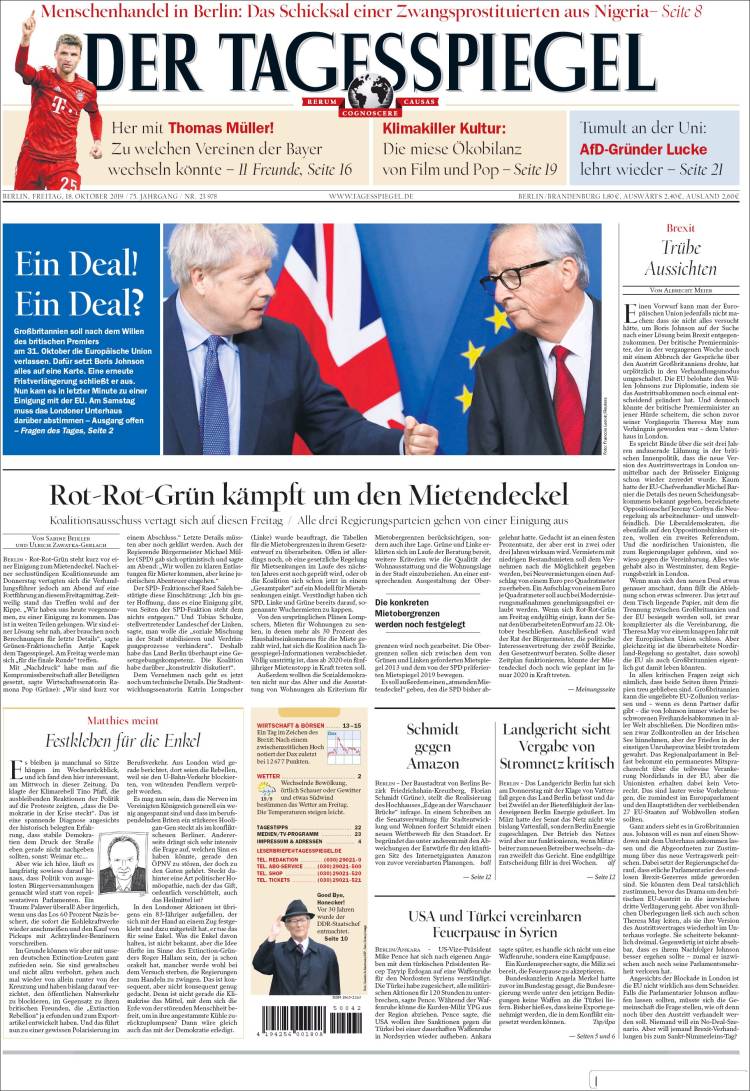
Image may be NSFW.
Clik here to view.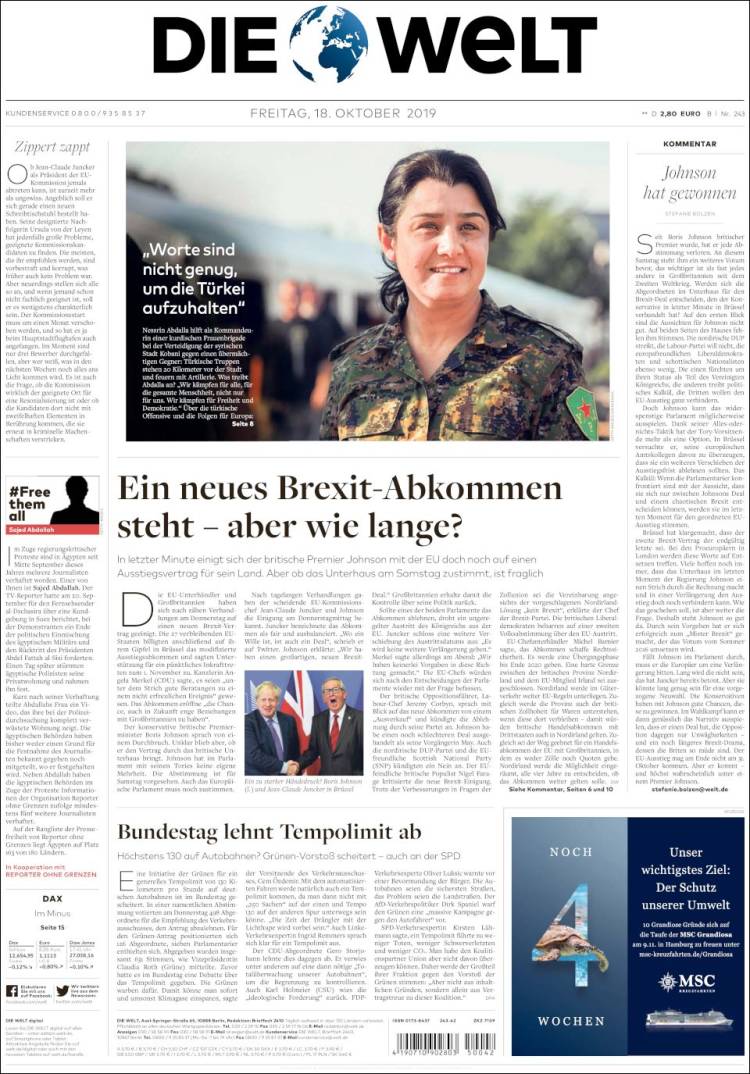
Image may be NSFW.
Clik here to view.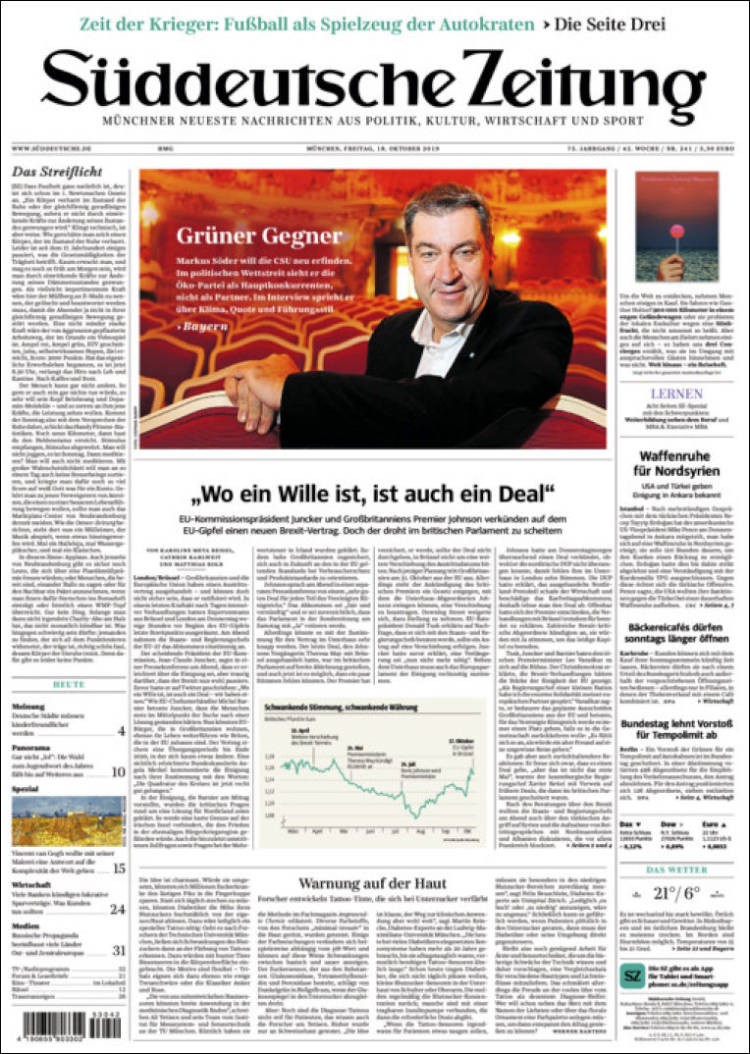
Belgium
De Morgen’s front page noted that Johnson had “feverishly” searched for an acceptable Brexit pact, adding: “All eyes on British lower house.” The paper prominently quoted U.K. opposition Labour leader Jeremy Corbyn, who said on Thursday that the deal didn’t meet his party’s demands. L’Echo featured the Belgian version of the expression “double or nothing” on its front page. De Tijd said the British parliament “is in control of the Brexit deal.”
Image may be NSFW.
Clik here to view.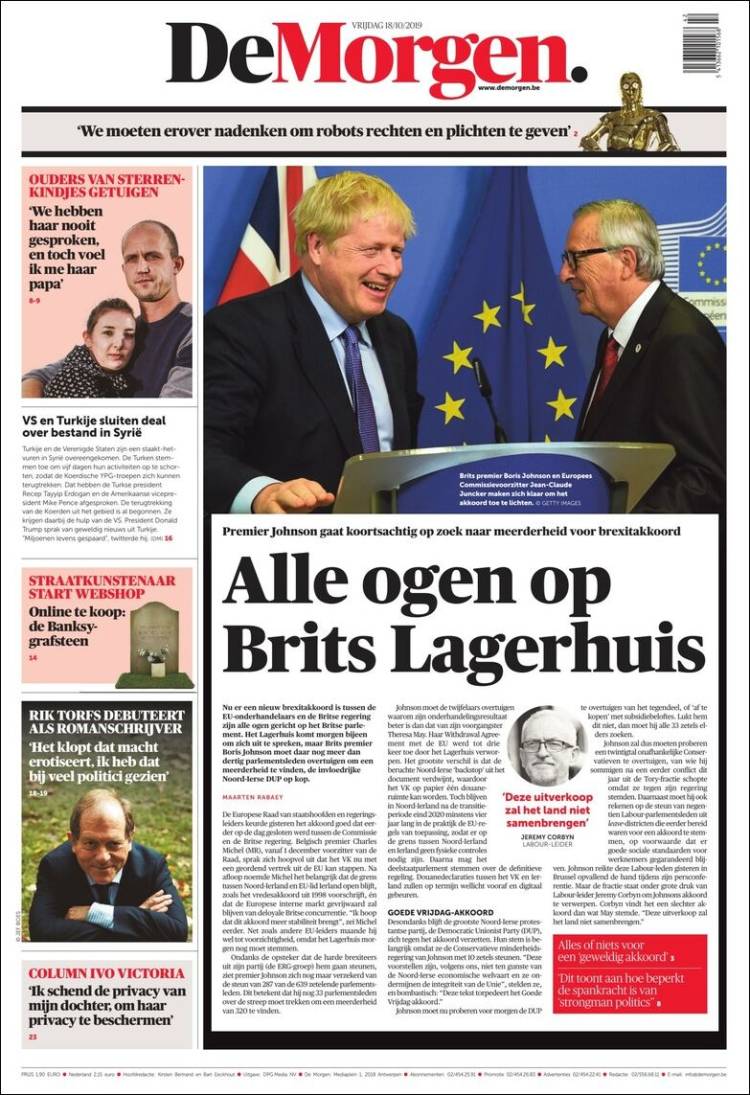
Image may be NSFW.
Clik here to view.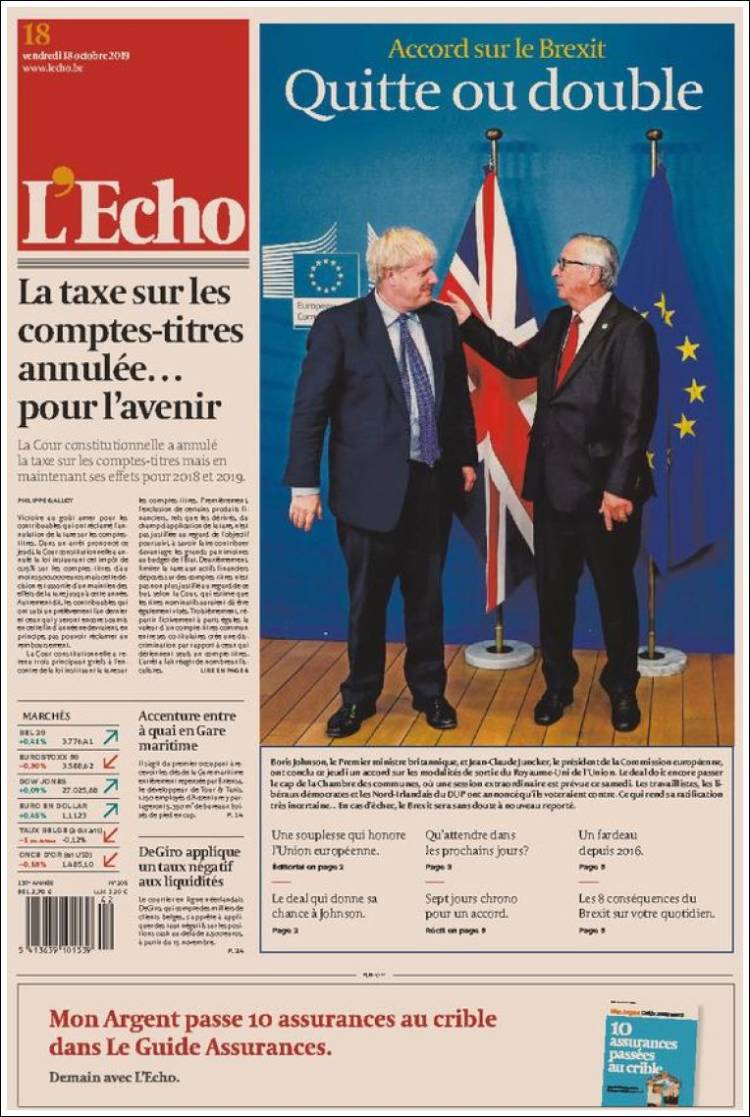
Image may be NSFW.
Clik here to view.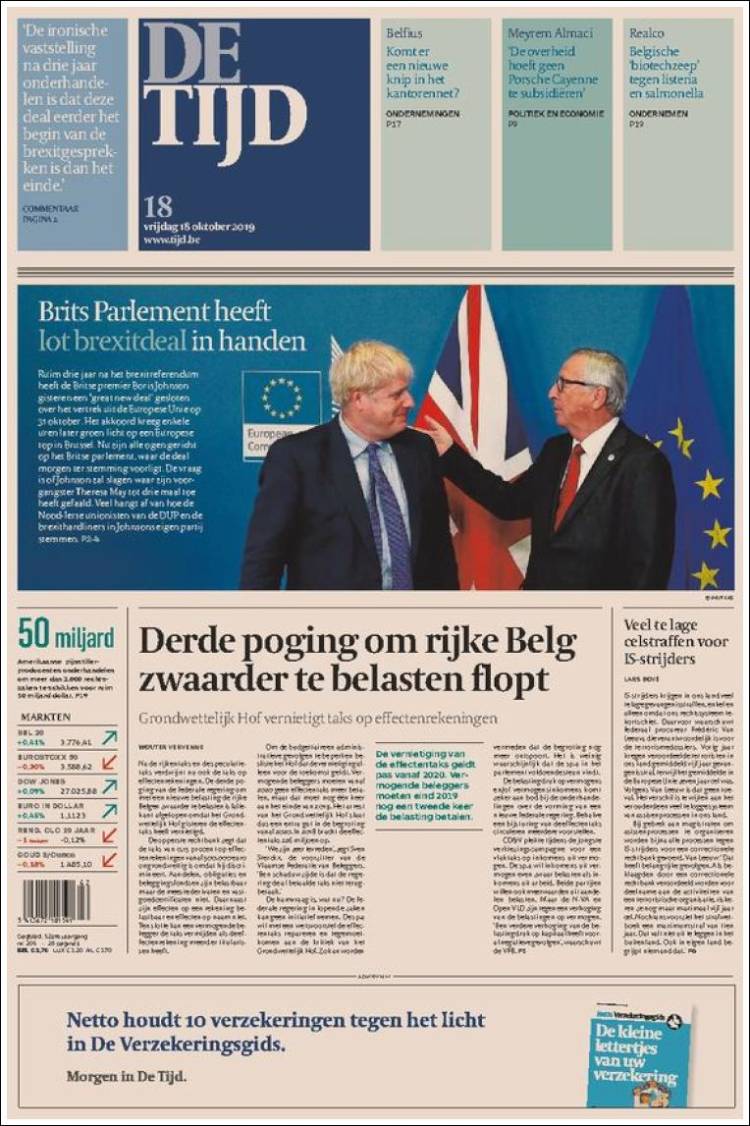
Italy
Il Messaggero reckoned Johnson’s Brexit vote was “hanging by a thread.” Milan’s Il Sole 24 ORE noted that “the London verdict” would come on Saturday, as did La Repubblica.
Image may be NSFW.
Clik here to view.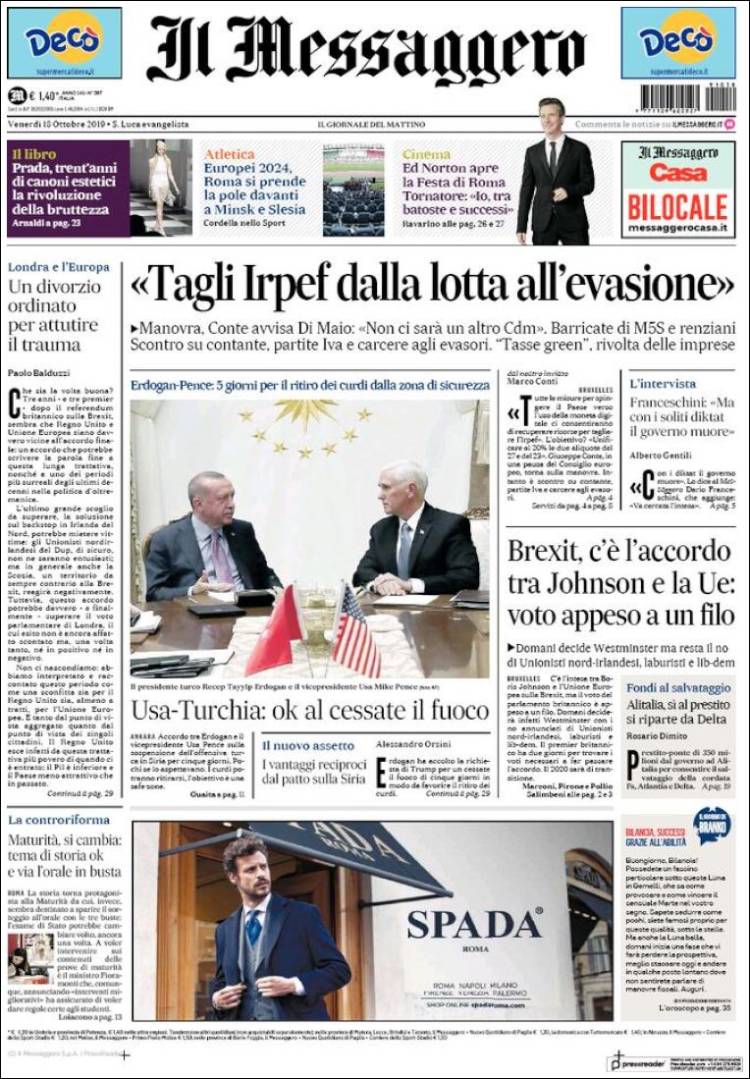
Image may be NSFW.
Clik here to view.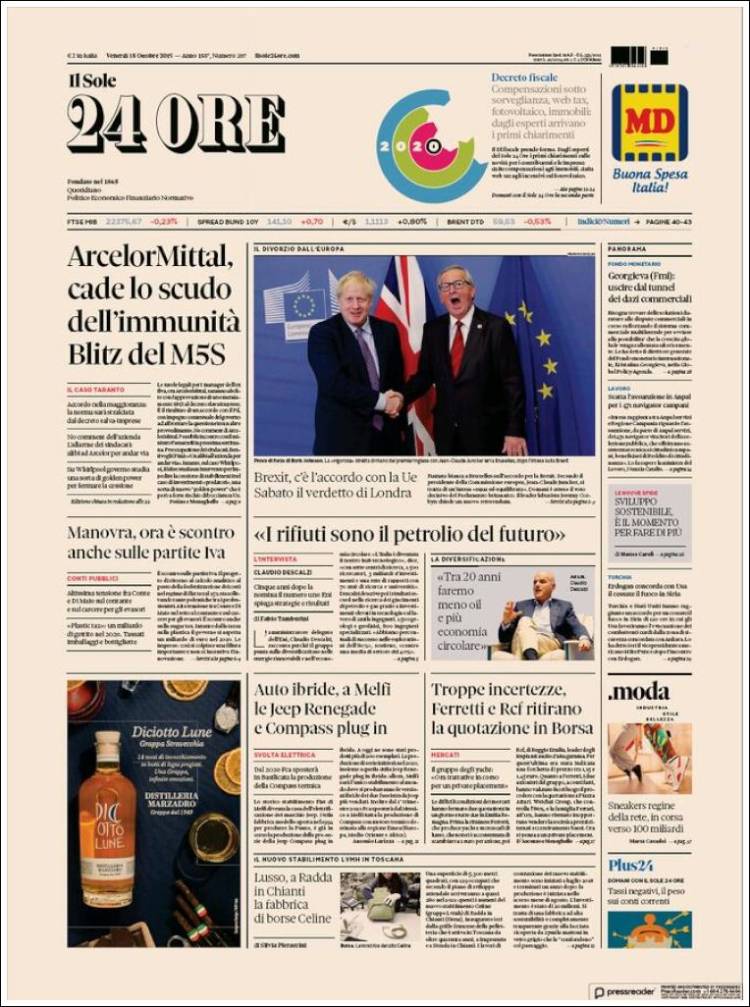
Image may be NSFW.
Clik here to view.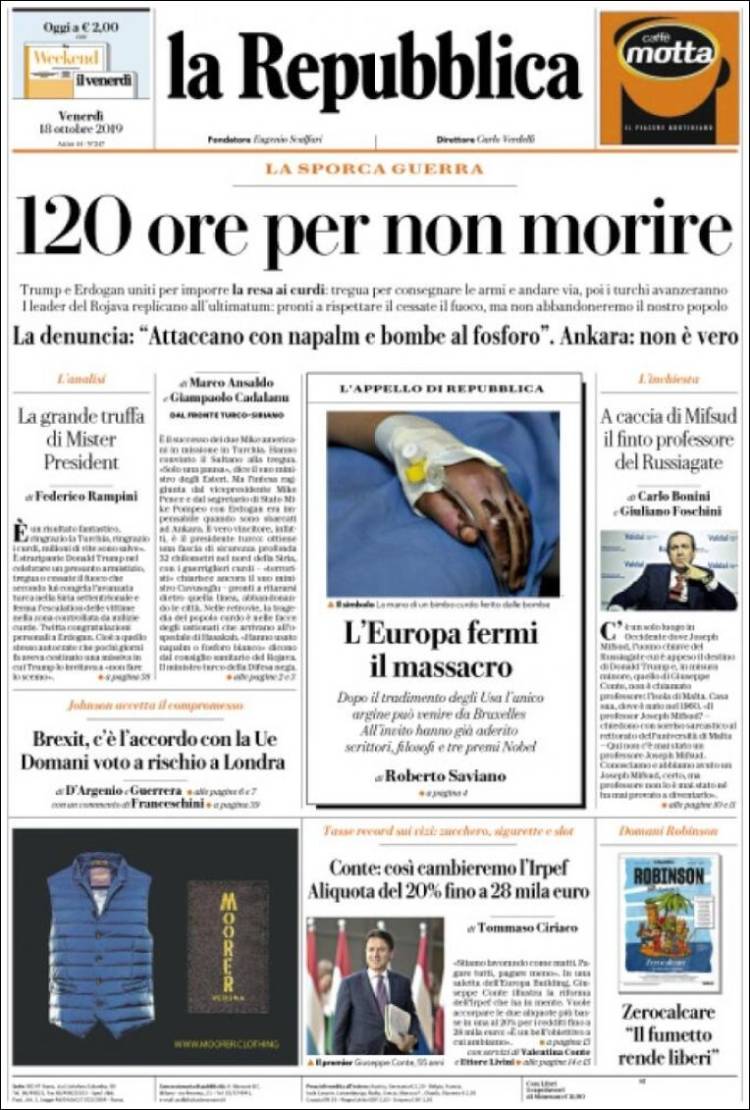
Spain
El País said Johnson’s deal “is threatened by the possible rejection of the British parliament.” El Mundo declared: “Johnson sacrifices Ulster for his agreement with the EU,” referring to the DUP’s objections. La Vanguardia wrote that now that the deal was done, “Boris Johnson now faces the challenge of having the agreement approved at Westminster.” La Razón dubbed the deal “Soft Brexit without Westminster,” and noted that Northern Irish unionists and Labour would reject the text.
Image may be NSFW.
Clik here to view.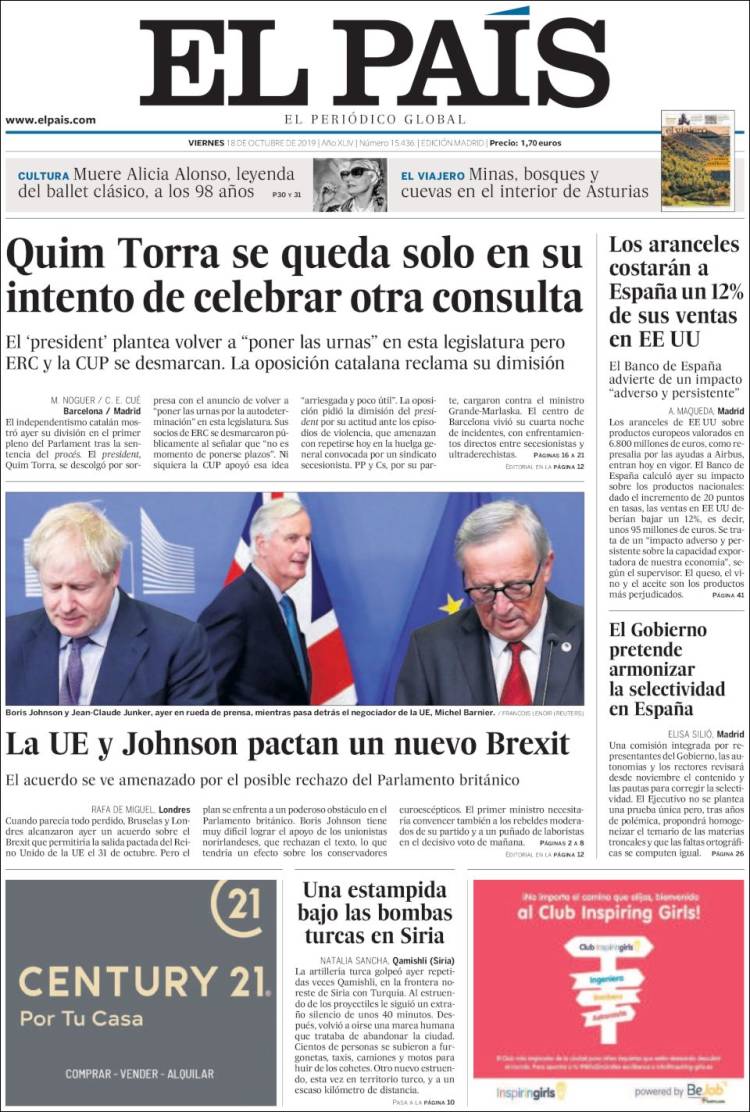
Image may be NSFW.
Clik here to view.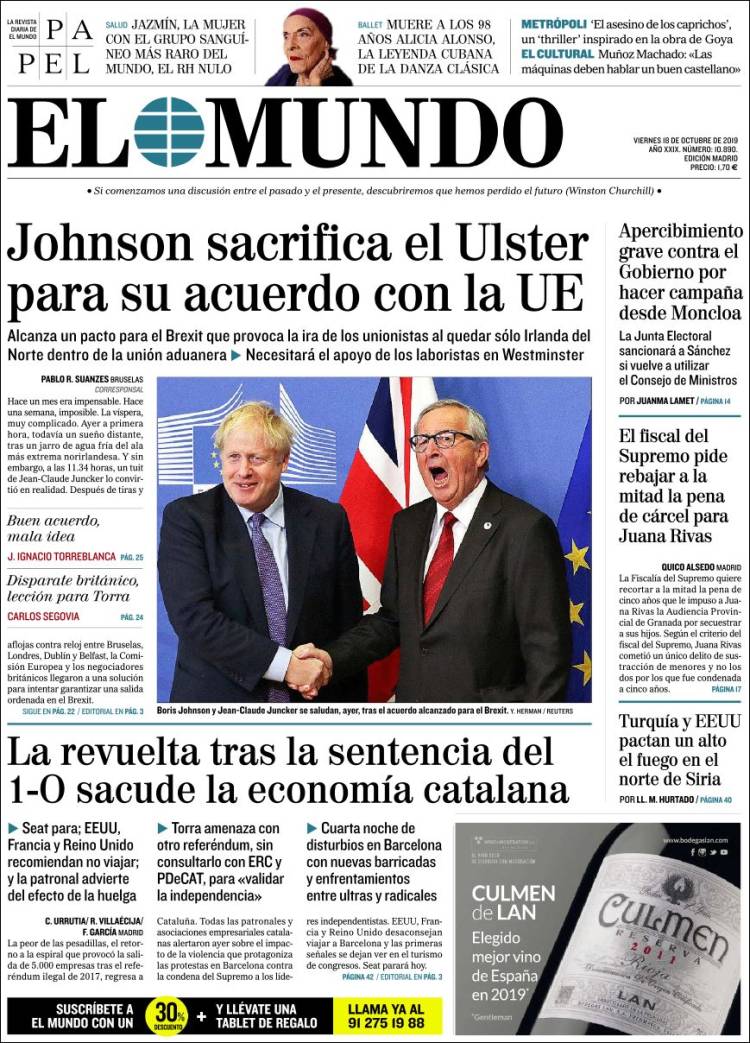
Image may be NSFW.
Clik here to view.